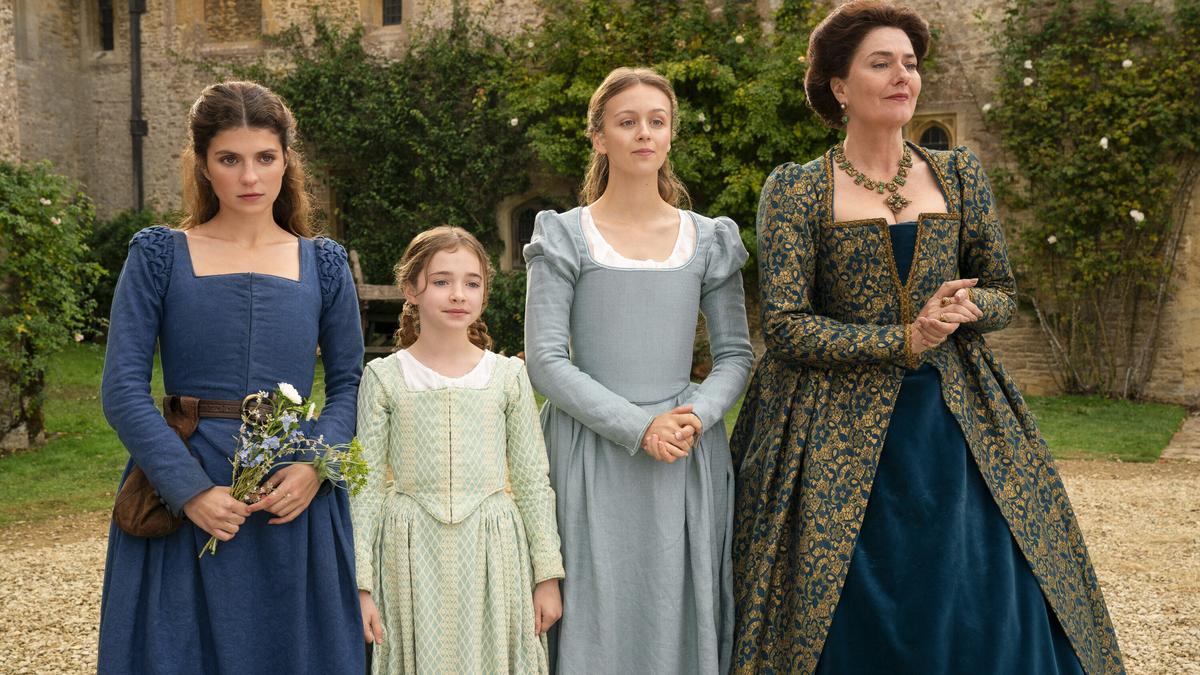
Anna Chancellor interview: On ‘My Lady Jane,’ the dichotomy of Tudor England and her love for Indian-made fabrics
The Hindu
British actor Anna Chancellor talks about playing Lady Frances Grey in Prime Video’s upcoming series ‘My Lady Jane’, and what it takes to play a domineering, scheming, power-crazed mother
Anna Chancellor says she did not do any research for her role as Lady Frances Grey in My Lady Jane. The eight-episode series, starring Dominic Cooper and Jim Broadbent among others, is based on Brodi Ashton, Cynthia Hand and Jodi Meadows’ bestselling YA novels, and re-imagines the life of the Nine Days’ Queen, Lady Jane Grey. Anna plays Lady Frances, the controlling, power-hungry mother of Jane (Emily Bader).
“I knew a little bit about Tudor England,” Anna says over a video call from Crete. “I knew about Henry VIII and Hampton Court. I knew that they beheaded many young women and queens.” Tudor England, Anna says, had a strange dichotomy. “They were incredibly sophisticated, wore fantastic clothes, there were big traders and had this love of art, and yet were extremely violent.”
The script, Anna says with a laugh was not really historically accurate. “The main thing was to understand the tone the makers wanted.”
The 59-year-old actor says it’s “the normal way” when asked about how she got the role. “I got sent the script, auditioned, put my two or three scenes on tape, (now we actors record ourselves) and sent it. That was that, there was no big drama.”
Though the show does not err particularly on the side of authenticity, Anna says the historical Lady Frances and the one in My Lady Jane align with Lady Frances even pinching her daughter.
“She has been seen in history as an unpleasant woman. From the diary that Lady Jane Grey wrote it seemed like her mother could have been a little mean, and that’s how she has been viewed in history. I don’t know how accurate that is. In many versions of the story, she is the domineering, scheming, power-crazed mother. And that is what the makers have stuck to in this version.” Henry VIII’s rule was a dramatic time in history, Anna says, which would explain the endless fascination for the period, from Wolf Hall to Shardlake and umpteen iterations of Henry and Anne Boleyn’s story.
“England was ruled by the Roman Catholic Church and to divorce Catherine of Aragon and marry Anne Boleyn, Henry VIII broke away from the church. It is such a mixture of history and the domestic. If somebody wants to leave the Church of Rome to make an alliance with Spain or for complex treaties, the audiences might have slightly lost it,” she adds. “At one level, this is such an easy story to understand. There is this king who has six wives and publically executes two of them. It is drama, isn’t it?”













